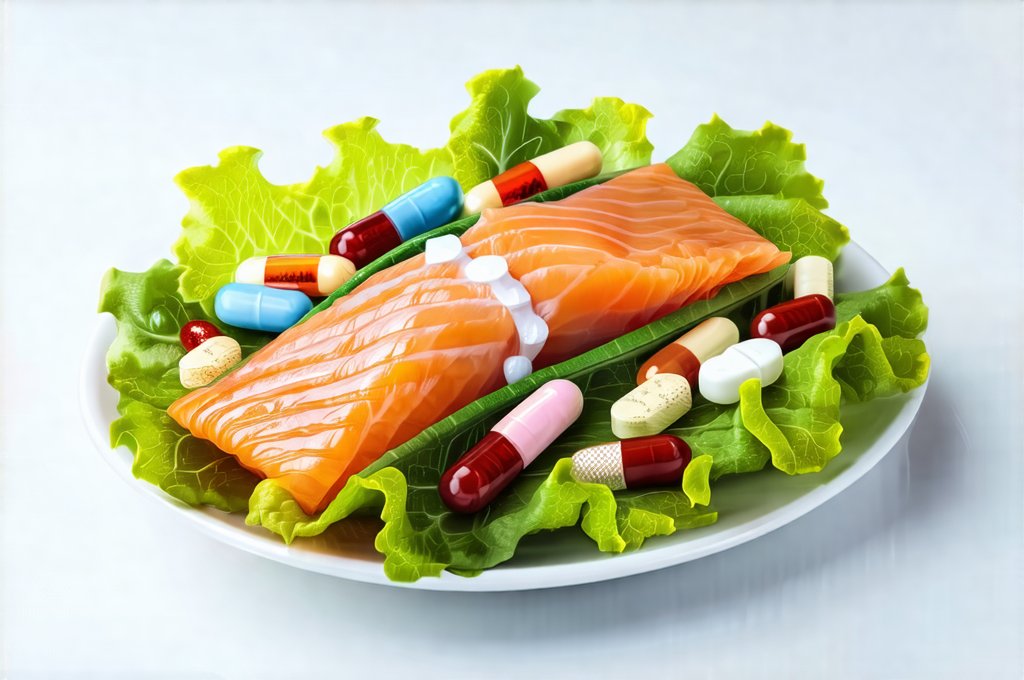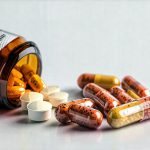Antibiotics are powerful medications vital for combating bacterial infections. However, their use often disrupts the delicate balance of bacteria within our gut microbiome—the vast community of microorganisms living in our digestive system. This disruption can lead to unpleasant side effects like diarrhea, bloating, and nausea, but more importantly, it weakens our immune defenses and overall health. Replenishing beneficial bacteria and supporting gut health after antibiotic treatment is crucial for restoring equilibrium and regaining optimal well-being.
The key isn’t simply ‘taking probiotics’, though that can be helpful. It’s about a holistic approach to nutrition, focusing on foods rich in prebiotics – the food sources for those good bacteria – alongside probiotic-rich options and nutrients that support gut healing. What we eat during this recovery period significantly impacts how quickly our digestive system recovers and how effectively our immune system is rebuilt. This article will delve into the best dietary choices to make after finishing a course of antibiotics, offering practical guidance for nourishing your body back to health.
Rebuilding Your Gut Microbiome: Food as Medicine
The gut microbiome isn’t just about digestion; it’s deeply intertwined with immunity, mental health, and even chronic disease prevention. Antibiotics indiscriminately kill both harmful and beneficial bacteria. This leaves the gut vulnerable, creating an opportunity for opportunistic pathogens to thrive while reducing the diversity of our microbial ecosystem. A diverse microbiome is a resilient one, better equipped to fight off infections and maintain overall health. Therefore, dietary strategies should aim to repopulate the gut with good bacteria and feed those existing ones.
Focusing on foods that naturally support this rebuilding process is far more effective than relying solely on probiotic supplements (though these can complement a healthy diet). Fermented foods are excellent sources of probiotics – live microorganisms similar to those found in your gut – but they aren’t the whole story. Prebiotic fibers, found abundantly in many plant-based foods, act as nourishment for these beneficial bacteria, helping them flourish and multiply. A combination of both prebiotic and probiotic foods provides a synergistic effect, maximizing gut health restoration.
Foods to prioritize include yogurt (with live and active cultures), kefir, sauerkraut, kimchi, kombucha, miso, tempeh, apples, bananas, garlic, onions, asparagus, leeks, oats, barley, and chicory root. Incorporating these into your daily diet will provide a solid foundation for gut healing. Remember to introduce fermented foods gradually to avoid digestive upset, as sudden introduction can sometimes exacerbate symptoms. Considering best practices is a good idea when introducing these back into your diet.
Supporting Gut Healing & Immune Function
Beyond simply repopulating the gut, it’s essential to focus on foods that actively heal the intestinal lining and bolster immune function. Antibiotic use can compromise the integrity of the gut barrier – often referred to as “leaky gut” – allowing undigested food particles and toxins to enter the bloodstream, triggering inflammation. This is where anti-inflammatory foods become invaluable.
Foods rich in omega-3 fatty acids, such as salmon, flaxseeds, chia seeds, and walnuts, are known for their potent anti-inflammatory properties. Similarly, incorporating turmeric (containing curcumin), ginger, and berries into your diet can help reduce inflammation and support gut health. A crucial element is also adequate hydration. Drinking plenty of water helps maintain the mucosal lining of the digestive tract, promoting healing and regularity. It’s worth noting that alcohol and excessive caffeine can further irritate the gut, so minimizing these during recovery is advisable. If you’ve recently been ill, a post-recovery diet will help guide your nutrition choices.
Foods to Focus On After Antibiotics
- Bone Broth: Rich in collagen and amino acids, bone broth supports the repair of the intestinal lining. Simmering bones for extended periods extracts nutrients that are easily digestible and promote gut healing.
- Fiber-Rich Vegetables: Sweet potatoes, carrots, and beets provide soluble fiber, which helps regulate bowel movements and feed beneficial bacteria. Steaming or roasting these vegetables makes them easier to digest.
- Lean Proteins: Chicken, turkey, and fish provide essential amino acids for tissue repair without placing a heavy burden on the digestive system. Avoid overly processed meats during this recovery period.
Foods to Limit or Avoid During Recovery
- Processed Foods: These often contain additives, sugars, and unhealthy fats that can further disrupt gut health and inflammation.
- Sugary Drinks & Snacks: Sugar feeds harmful bacteria in the gut, hindering the restoration of a healthy microbiome.
- Dairy (for some): While yogurt with live cultures is beneficial, some individuals may experience increased digestive discomfort from other dairy products after antibiotics. Monitor your tolerance and adjust accordingly. It’s important to test food tolerances if you suspect issues.
Reintroducing Foods Gradually
A common mistake during recovery is trying to jump back into a normal diet too quickly. This can overwhelm the sensitive gut and lead to flare-ups of symptoms. Instead, adopt a gradual reintroduction approach:
- Start with easily digestible foods: Bone broth, cooked vegetables (sweet potato, carrots), and lean protein are excellent starting points.
- Introduce new foods one at a time: This allows you to identify any potential sensitivities or intolerances.
- Monitor your symptoms: Pay attention to how your body responds to each food. If you experience bloating, gas, or diarrhea, eliminate that food and try again later. Also consider reintroducing heavier foods carefully as your gut recovers. And don’t forget the value of functional foods to help rebuild your microbiome.
The information provided in this article is for general knowledge and informational purposes only, and does not constitute medical advice. It is essential to consult with a qualified healthcare professional for any health concerns or before making any decisions related to your health or treatment. If you are recovering from a viral stomach bug, it’s also wise to eat safely.


















